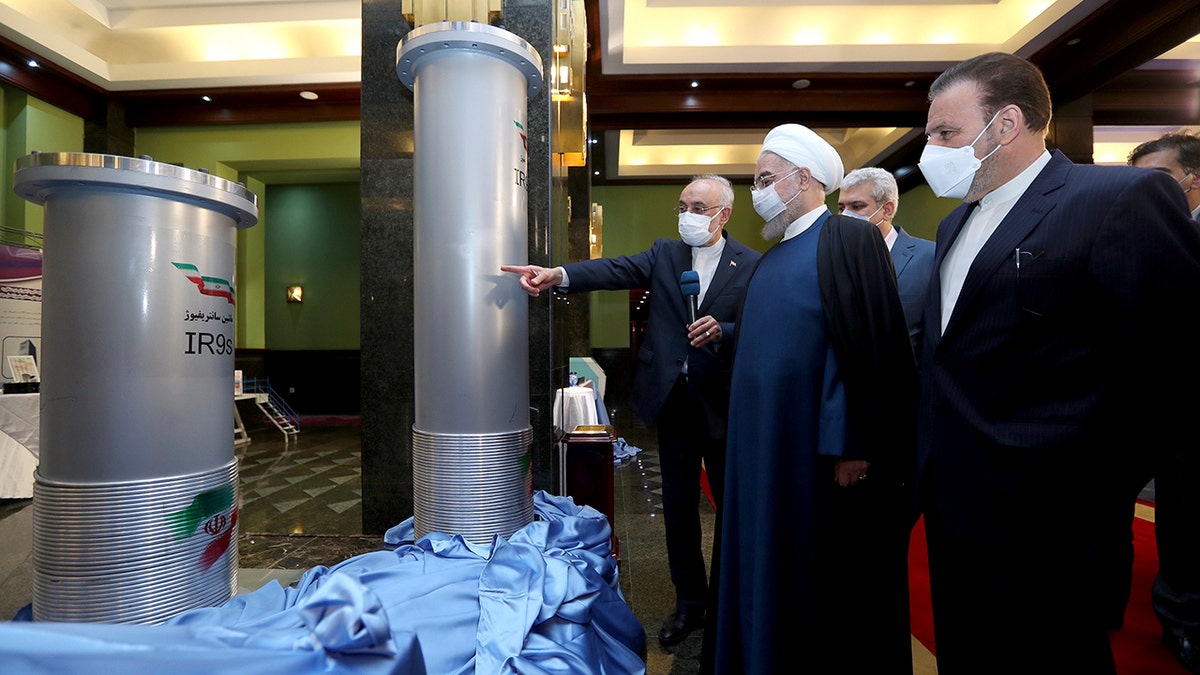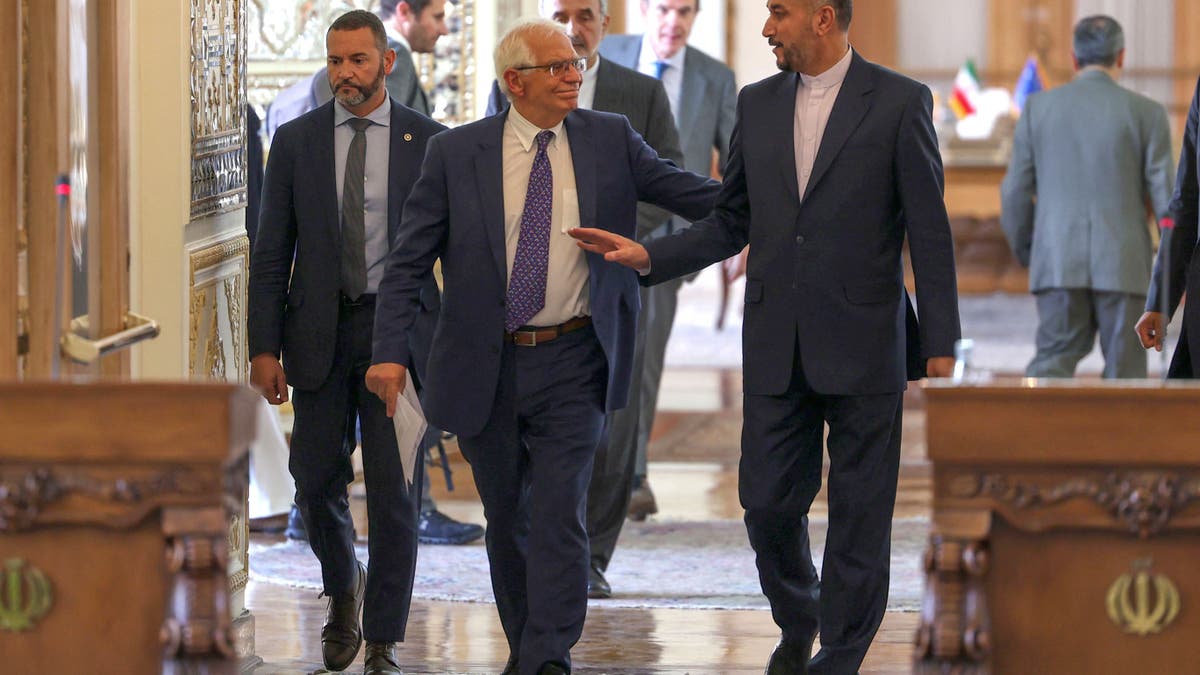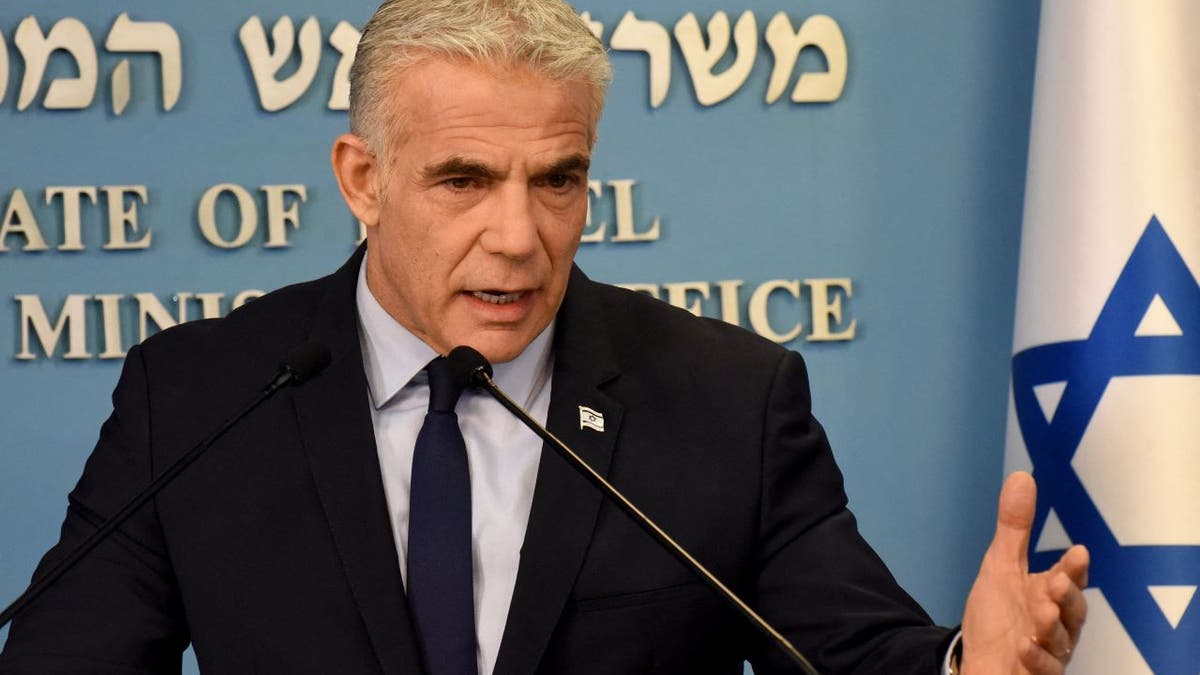Biden's potential Iran deal would violate US law: Rep. Waltz
Rep. Michael Waltz, R-Fla., questions why President Biden is working toward reviving the Iran nuclear deal and discusses the recent car bombing in Russia.
An Iranian official announced Wednesday that his country will not allow any nuclear inspections beyond what was agreed upon in its 2015 arrangement with the United States.
"We are committed to inspections in the framework of the nuclear deal that are linked to nuclear restrictions which we have accepted in the past... Not one word more, not one word less," said Mohammad Eslami, head of Iran's Atomic Energy Organization, according to a video carried by state media.
Eslami’s statement appears to contradict reporting earlier this week that Iran has dropped some of its main demands. Reports suggested that Tehran was relaxing its insistence that international inspectors close some probes of its atomic program, bringing the possibility of an agreement closer.
Washington aims to respond soon to a draft agreement proposed by the European Union that would bring back the 2015 nuclear deal with Iran that former President Trump scrapped and current President Biden has sought to revive.
BIDEN ADMIN OFFICIAL TOUTS IRAN NUCLEAR DEAL AS A WAY TO BRING US GAS PRICES DOWN

Former President Hassan Rouhani, second right, listens to head of the Atomic Energy Organization of Iran Ali Akbar Salehi while visiting an exhibition of Iran's new nuclear achievements in Tehran (Iranian Presidency Office/AP)
Iran has insisted that the nuclear pact can only be salvaged if the International Atomic Energy Agency drops its claims about Tehran's nuclear work. Washington and other Western powers view Tehran's demand as outside the scope of reviving the deal.
Israel has vehemently opposed the potential nuclear deal. The Jewish state said Monday that it "would make no further concessions to Iran" and that it was time to "walk away" from a deal.
IRANIAN CONCESSIONS COULD PAVE THE WAY TO REVIVED NUCLEAR DEAL: REPORT

Iran's Foreign Minister Hossein Amir-Abdollahian (R) attends a press conference with Josep Borell, the High Representative of the European Union for Foreign Affairs and Security Policy (C) at the foreign ministry headquarters in Iran's capital Tehran on June 25, 2022. (Photo by ATTA KENARE/AFP via Getty Images)
Former Israeli Prime Minister Naftali Bennett called on the Biden administration to "refrain" from signing any agreement with Iran and said the current plan would "send approximately a quarter of a trillion dollars to the Iranian terror administration's pocket and to its regional proxies."
"Our allies in Israel, they're not comfortable with it. They're the prime target. Our Arab allies are also not comfortable getting back into a deal with Iran," Fox News host Martha MacCallum said to National Security Council coordinator John Kirby on Tuesday. "So does this isolate us out of that equation when we’re doing something that all of those partners are not happy with?"
"Quite the contrary," Kirby responded, arguing that it was the withdrawal from the deal under Trump in 2018 that isolated the U.S. from its allies. When the U.S. was active in the agreement, he said, Iran isolated itself by violating the same deal the White House is determined to revive.
"When we were in the deal, Iran was the one that was isolating itself by not accommodating to it, So look, we were isolating ourselves by pulling out," he said. "It was a decision that was opposed by our European allies and partners and many other countries around the world. Now we want back in the deal. We want Iran back in the deal so that we can eliminate the outcome of them having a nuclear weapon."
CLICK HERE TO GET THE FOX NEWS APP

Israeli Prime Minister Yair Lapid speaks at a security briefing about Iran for the foreign press at the Prime Minister's office in Jerusalem on August 24, 2022. (Photo by DEBBIE HILL/POOL/AFP via Getty Images)
The White House did not immediately respond to a request for comment from Fox News Digital.
Reuters contributed to this report

